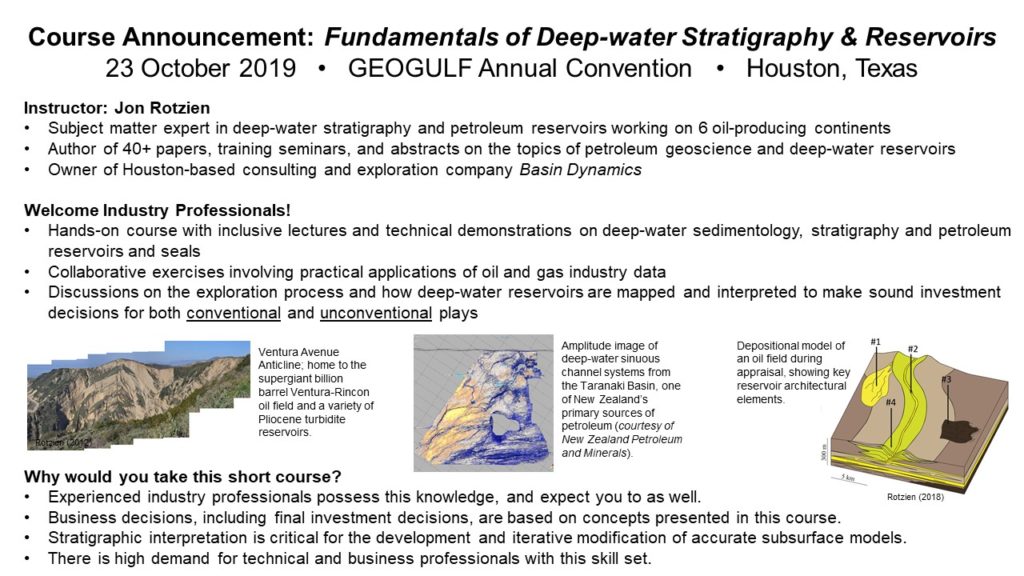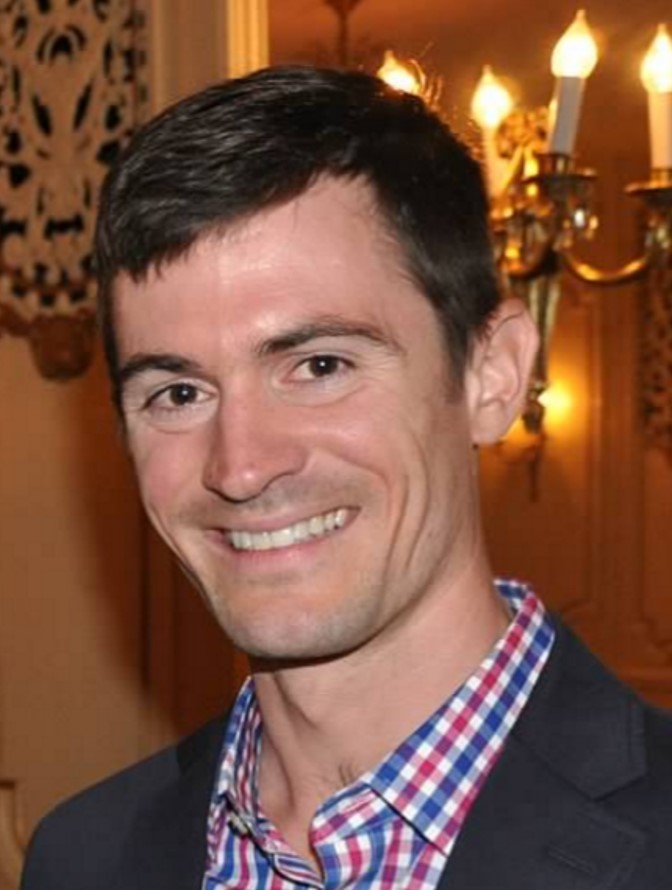Date: Wednesday, October 23, 2019
Time: 8:30 am to 4:30 pm
Location: Marriott Westchase
Cost: $195
Instructor: Jon Rotzien, Basin Dynamics. Sponsored by GCSSEPM.
Included with course registration: Class notes, buffet lunch and networking time. Convention Icebreaker will be at 5 pm after the course concludes.
This seminar presents an integrated view of deep-water stratigraphy and petroleum reservoirs and is designed for subsurface experts interested in the technical aspects of deep-water exploration and production. Deep-water depositional systems form some of the largest petroleum reservoirs on Earth and represent the frontier of oil and gas exploration. However, deep-water depositional systems remain the least well understood because sediment gravity flows, including turbidity currents and hybrid and debris flows, are both infrequent and difficult to predict and monitor, setting them apart from terrestrial sediment transport processes. Therefore, modern seismic data and, in particular, deep-water outcrops provide prime sources of stratigraphic data used to risk drilling targets and build reservoir models at every phase in the upstream exploration and production process. This course provides participants with an understanding of bed- to field-scale architectural elements in deep-water systems and how they affect the main risks in deep-water E&P across the value chain. This seminar has three main themes:
-
Processes of sedimentation and reservoir prediction in deep-water provinces
-
Deep-water depositional environments from canyon head to basin plain
-
Main drivers of sedimentation along continental margins
This is an opportunity to learn about the diverse nature of deep-water reservoirs as well as the petroleum system evolution of reservoir and seal rocks of complex continental margins. The processes of sedimentation and stratigraphic architecture of deep-water petroleum reservoir analogs including seismic-scale channel-fill and splay deposits will be featured along basin fairways to margins. Key risks in oil and gas drilling including reservoir presence, reservoir quality, and seal presence will be main discussions during the course, with special focus on conventional siliciclastic reservoirs.
Jon Rotzien is President of Basin Dynamics based in Houston. Mr. Rotzien received a Ph.D. in Geological Sciences from Stanford University and a B.A. degree in Geology from Colorado College. Rotzien is also Adjunct Professor at the University of Houston in the Department of Earth and Atmospheric Sciences. His experience is documented at- http://easd.geosc.uh.edu/cv/jon_rotzien_cv.pdf
He has published peer-reviewed research papers and conference proceedings pertaining to petroleum geology, reservoir characterization, sequence stratigraphy, basin analysis and geophysics, and he consults for the oil and gas industry on all oil-producing continents. Since 2017, he has delivered industry courses designed for AAPG and its partner societies OTC and GCAGS in Houston, Bakersfield and San Antonio with upcoming commitments for AAPG Middle East. He is a Distinguished Service Award winner of GCSSEPM (2018), associate editor of the Bulletin of Canadian Petroleum Geology and co-founder of the Houston Explorers Club.
return to previous page


